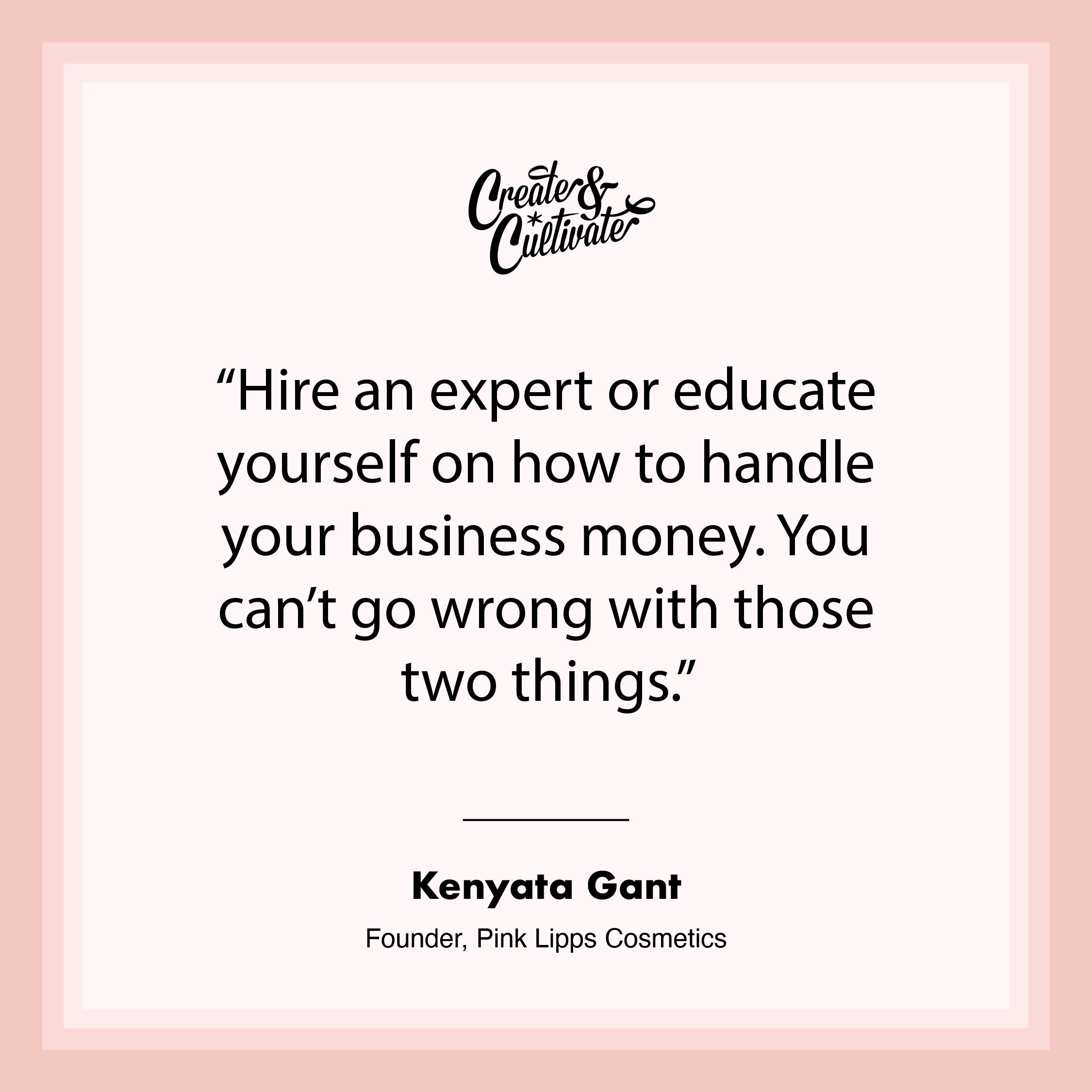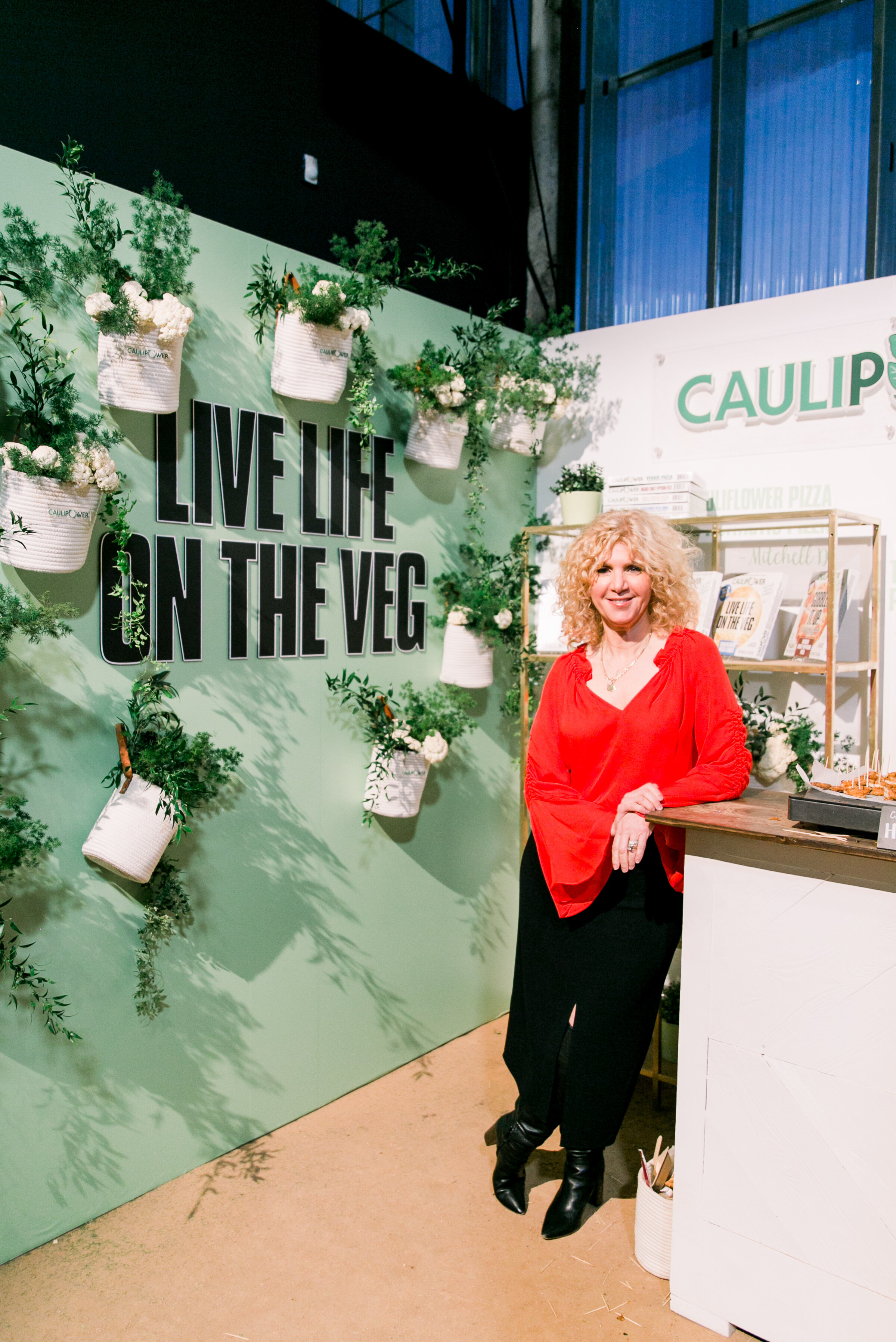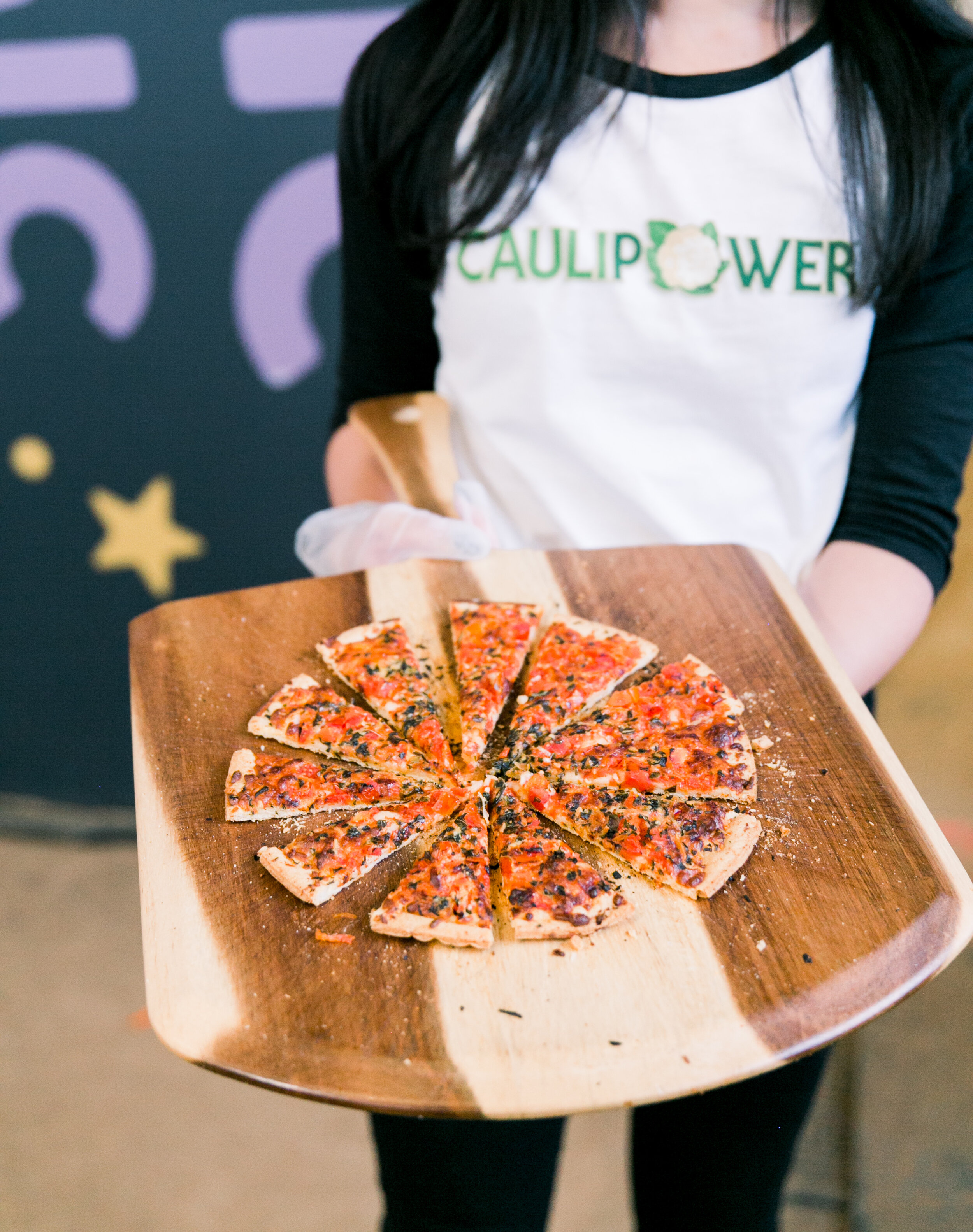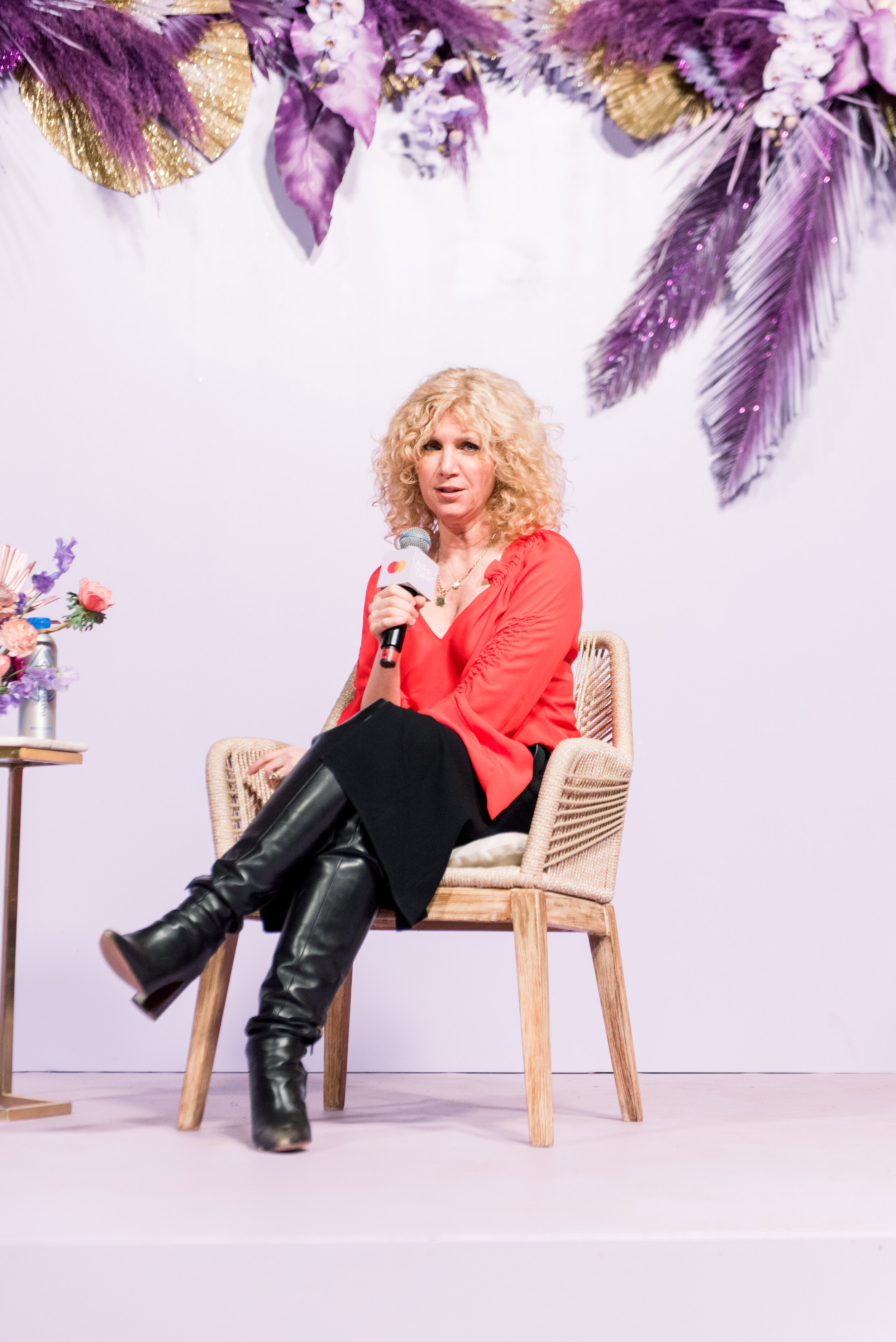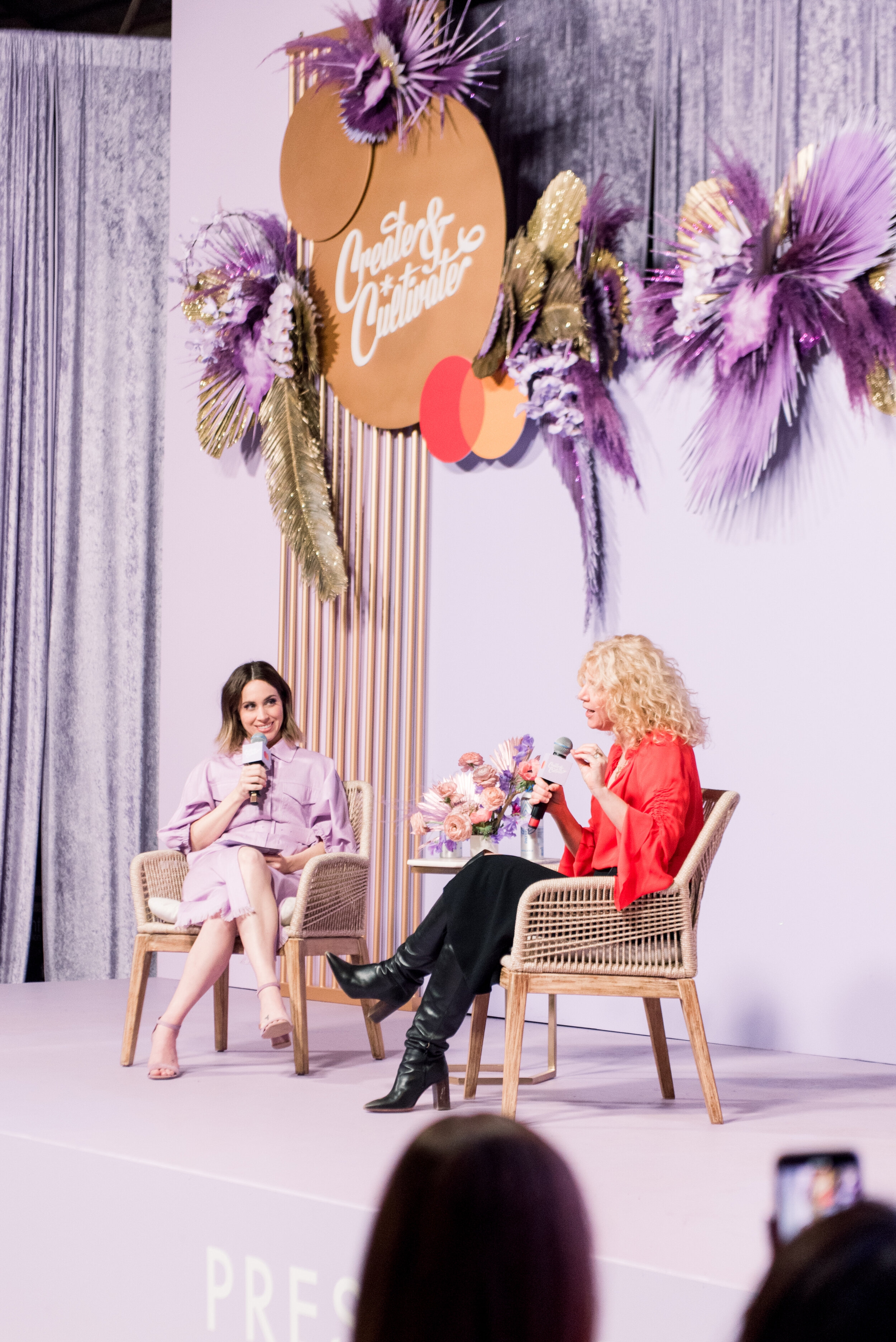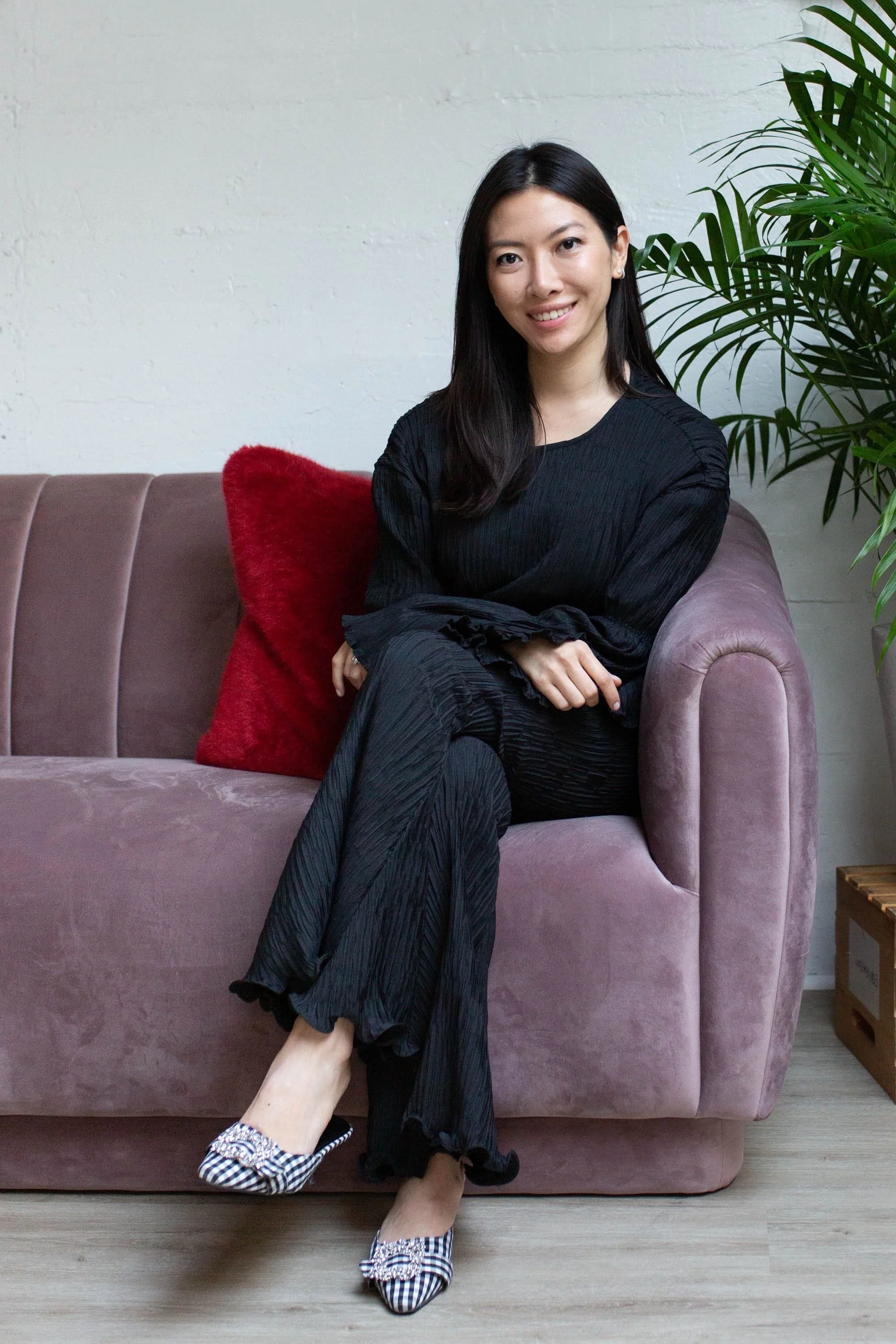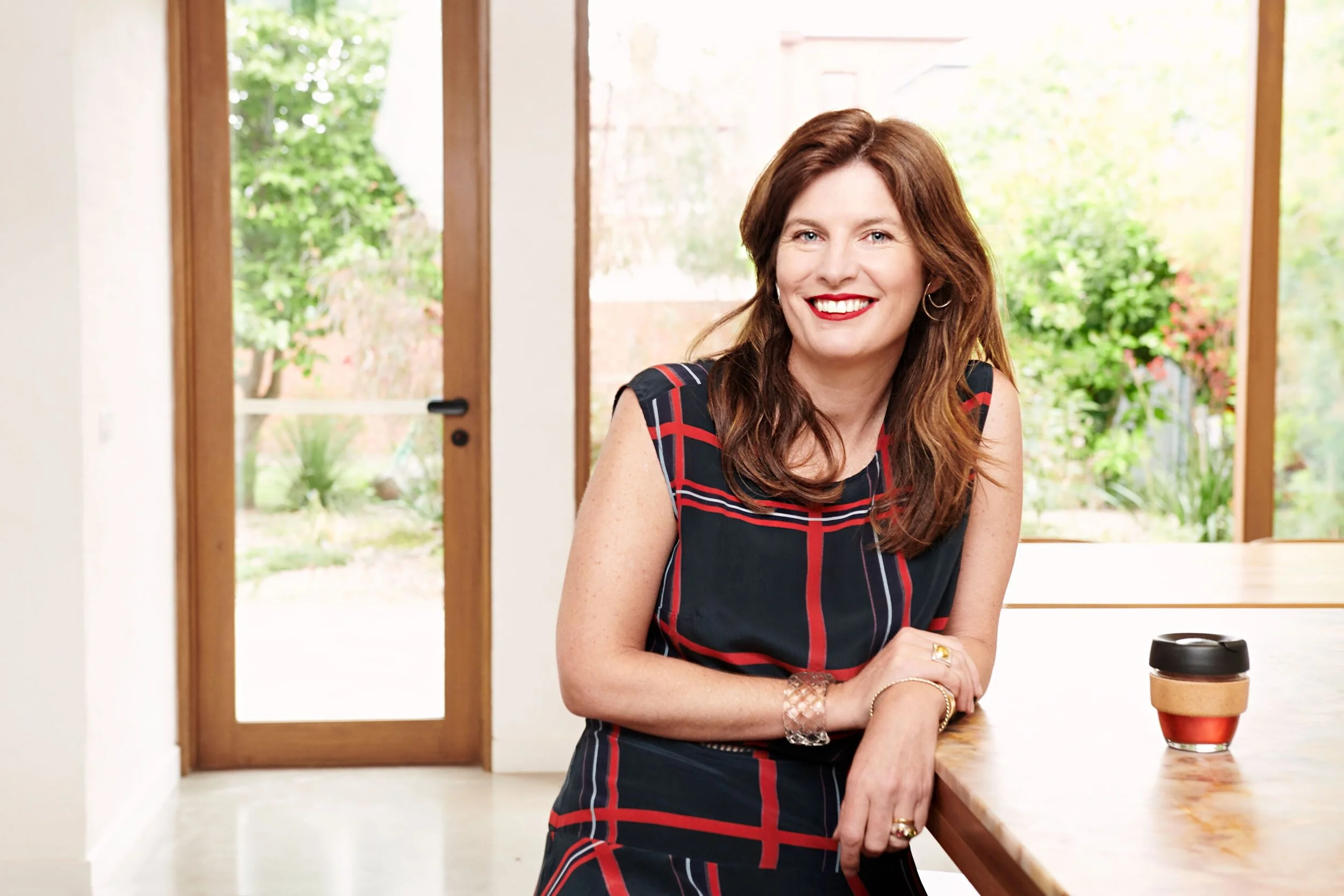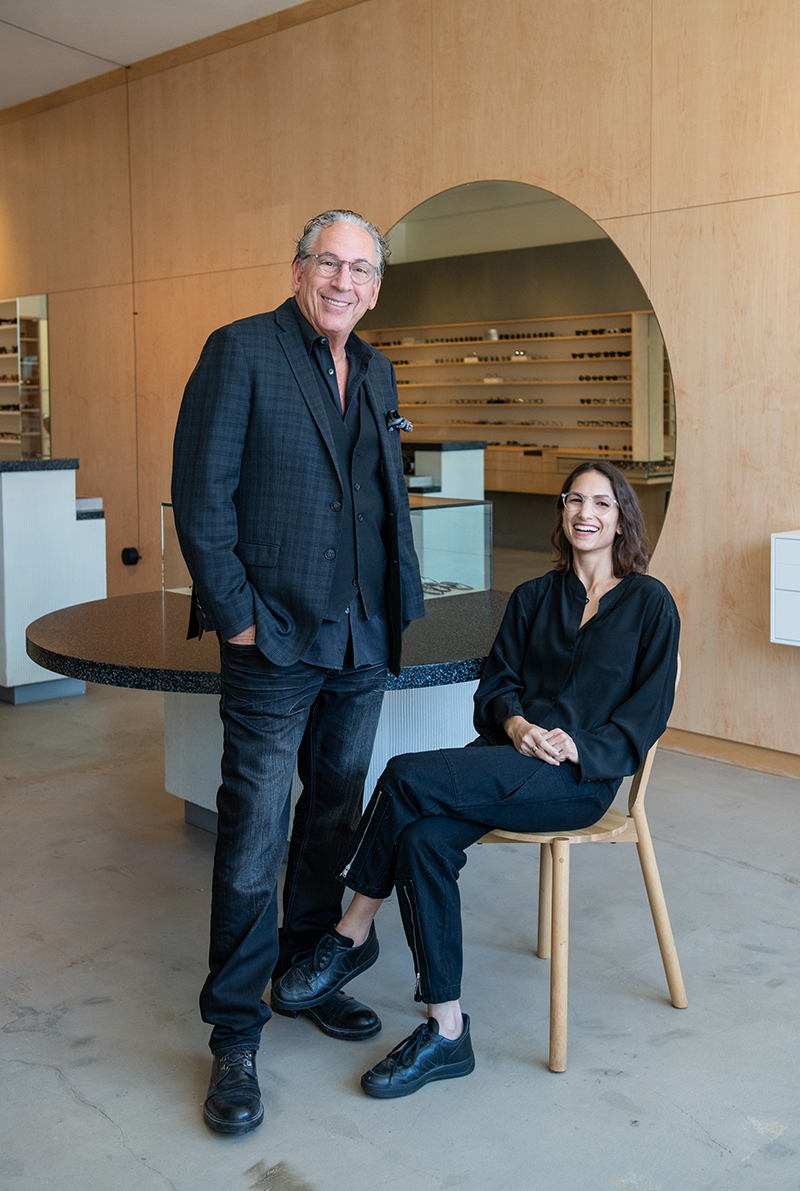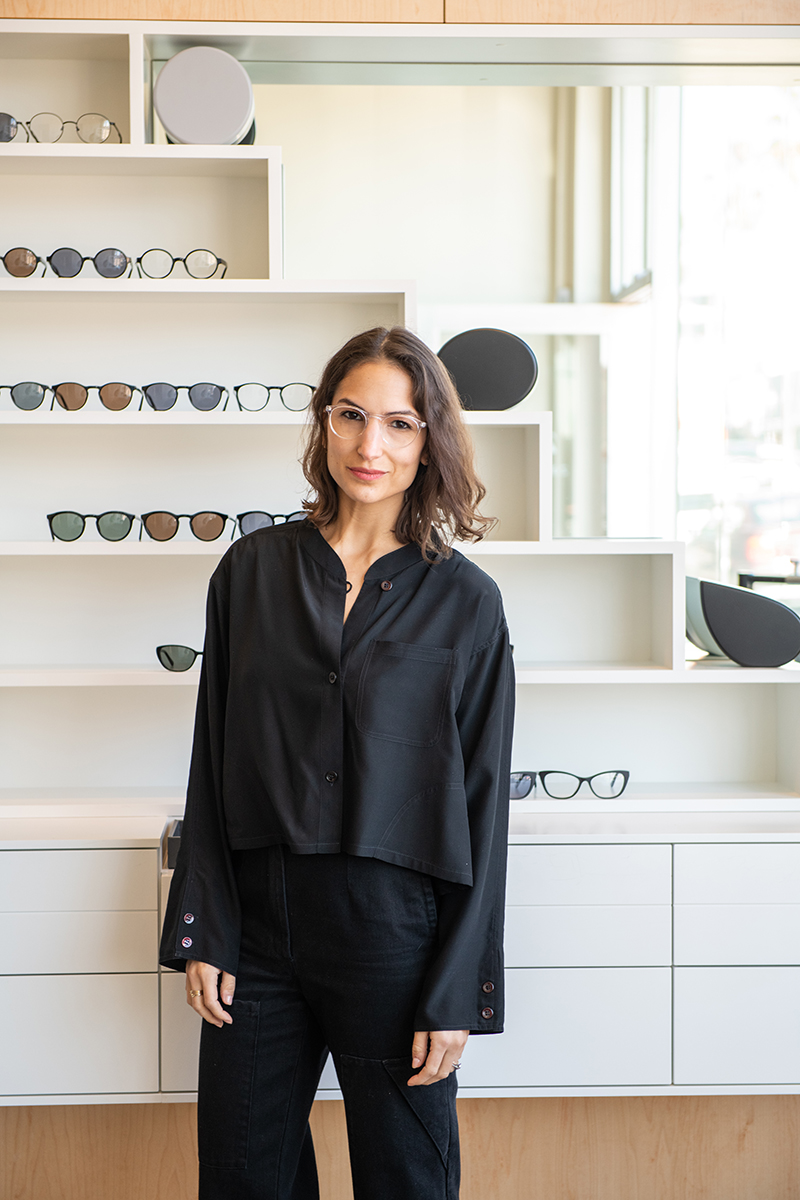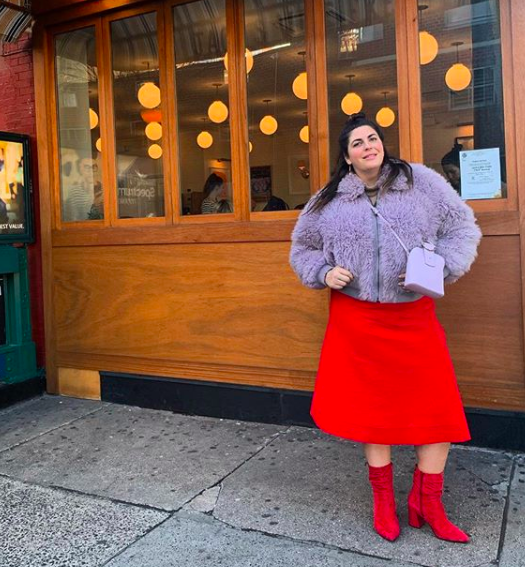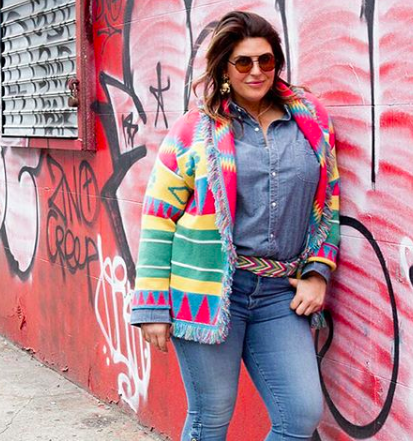"I Was Always Broke Trying to Fund My Business"—Why This Successful Founder Wants You to Save As Much As You Can Before Launch
Or as little as $50 a month.
You asked for more content around business finances, so we’re delivering. Welcome to Money Matters where we give you an inside look at the pocketbooks of CEOs and entrepreneurs. In this series, you’ll learn what successful women in business spend on office spaces and employee salaries, how they knew it was time to hire someone to manage their finances, and their best advice for talking about money.
In honor of Black Equal Pay Day, we're shining a spotlight on Black female founders by taking a closer look inside their successful businesses and how they funded them from the ground up.
Kenyata Gant tells me she was “operating on faith” when she bootstrapped her business, Pink Lipps Cosmetics. Turns out the universe was listening because after sending a tweet that she needed an investor, a philanthropic follower gifted her $10,000 to get the company off the ground. “ I had no idea what to spend that money on except that I needed inventory,” she tells Create & Cultivate. “The process was hard because I knew that I would make a lot of mistakes and I did, but I was ready to because I know that mistakes are lessons.”
Once the $10,000 ran out, Gant self-funded the business using money from her full-time corporate job. If she could go back to the beginning, Gant says she would have saved more money before launching the business. “I was always broke trying to fund my business,” she reflects. “I would recommend saving money and building on it because it is the smart thing to do. Being broke is not fun!”
And as for the kind investor? “We are still friends to this day,” reveals Gant. “He congratulates me from time to time and I still thank him for giving me that chance! “ Read on to learn more money advice from Gant, mistakes made along the way, and why she believes all founders should pay themselves 30%.
On raising money…
Three crucial elements to include when pitching to raise money are:
Things that set you apart from your competition
A clear vision of why the world needs your business
A solid plan to achieve your vision
On paying herself…
I think business owners should pay themselves 30% or a minimum of $50 a month. I didn’t do that for five years into my business.
On working full-time while building the brand…
I worked another job for five years before solely going self-employed. I funded my business with the leftovers of my check. My advice would be to save and raise as much money as you can before starting a business.
On the most important area for business owners to focus their financial energy…
Branding and marketing! I chose those two because you can market literally anything and make millions if marketed the right way and to the right customer.
On her first big expense as a business owner…
My first big expense was inventory but I could handle selling that so then it was hiring a social media manager. I would say prepare for that by learning all that you can so you can run social media yourself until it becomes overwhelming, then hire someone to take it up a notch.
On the top three largest expenses every month?
My PR agency, my social media manager, and my influencer relationship manager.
On knowing when to hire…
I knew I was ready to hire when I made the decision to scale my brand. Scaling my brand wasn’t just about having the money to do so but the mindset to do so. I thought I could do everything by myself but I knew that my business just wasn’t going to get bigger that way. I am not an expert at everything and I had to learn that the hard way. The preparation was hard because I had to learn to trust someone else with the operation of my business.
On saving…
Yes, I am able to save revenue and I do that by telling myself that I must practice good business habits to continue to be successful. I spend money on things that are absolutely needed and will give me a good return.
On hiring an accountant…
I hired an accountant after being in business for five years. It was the smartest thing I could have done.
On spending wisely and taking it slow…
For small business owners on a budget, stay on that budget. Spend wisely and make sure you will get a nice return on what you purchase. Take your time with spending and don’t rush the process of becoming successful. Success is loving what you do and doing it every day, so run your business at your pace and wisely.
On what she would do differently…
I wish I had saved more money in the beginning. If I did that then I wouldn’t have needed to use my paycheck from my corporate job to fund the business.
On the importance of talking about money and business…
I think women should be able to talk about whatever they want to talk about as a business owner because we're just as smart as any man in business and we start/run more businesses, too. We also make good money doing it because of our passionate emotional ways.
On the money mistakes she’s made and learned from along the way…
Spending my business money on unrelated business things and business things that weren’t needed. I spent too quickly and didn’t put the money back into the business, so that was one of the hardest money lessons I had to learn. There was a time when I couldn’t afford to expand.
On the best piece of money advice for new entrepreneurs…
Hire an expert or educate yourself on how to handle your business money. You can’t go wrong with those two things.
MORE FROM THE BLOG
"I Maxed Out All of My Credit Cards and Lived Off Savings"—Now She's Built a $100M Company
CAULIPOWER CEO, Gail Becker gets real about bootstrapping, raising money, and running a multi-million dollar business.
You asked for more content around business finances, so we’re delivering. Welcome to Money Matters where we give you an inside look at the pocketbooks of CEOs and entrepreneurs. In this series, you’ll learn what successful women in business spend on office spaces and employee salaries, how they knew it was time to hire someone to manage their finances, and their best advice for talking about money.
“I took a risk and bet on myself. That’s the hardest part. If you don’t bet on yourself, who else ever will?”
—Gail Becker, CEO of CAULIPOWER
Money: like religion and politics, it’s off the table but if there’s one thing we need to talk about more, it’s money, especially as women. Why? Because more women than ever before are starting their own businesses and they’re growing at twice the speed. In fact, a new report found that 42% of all firms are female-owned and women started 1,817 businesses a day in the past year. Despite that, women-owned businesses still struggle to get crucial financing so we need to ditch the taboo and open up a public dialogue to better understand how to raise it, manage it, and grow it.
Someone who is boycotting that ban is the founder, and CEO of CAULIPOWER, Gail Becker. Since 2017, Becker has built a $100m company and completely disrupted the food industry to become the #1 better-for-you pizza in the U.S. At our recent LA2020 conference, Becker had some no-filter money advice, especially around the topic of raising it. Having taken on two rounds of investment for CAULIPOWER, she knows each entrepreneur must make the right choice for them. “Just because you can raise more money, doesn’t mean that you should” she told the audience. “It’s not a symbol of how successful you are… or will be.”
Becker also decided against a friends and family round for her startup. “It made me nervous to play with my friends’ and family’s money,” she explained. “I waited as long as I could before seeking outside funding. I used all of my own money initially and maxed out all my credit cards.” There are different ways to fund your business and, ultimately, it needs to come down to what you feel most comfortable with and what your business needs are,” she explained. “I took a risk and bet on myself,“ she said. “That’s the hardest part. If you don’t bet on yourself, who else ever will?”
So, we tapped the powerhouse founder and CEO to share more of her money lessons, mistakes she’s made, and advice for small business owners. Read on and grab a pen, you’ll want to write these down.
On bootstrapping the company in the beginning…
When I first started CAULIPOWER, my goal actually wasn’t to make money. My dad, who was an entrepreneur and a Holocaust survivor, had recently passed away, and it made me recognize the fragility of life. I had been working my way up the proverbial ladder of corporate America, and then decided that I really didn’t like the view. I wanted to do something more meaningful with my life and I realized that I needed to make a change. That, along with my frustration in what I was seeing in the freezer aisle, created an ‘aha' moment that inspired me to launch CAULIPOWER.
My dad had left me with a small amount of money, and I knew the best way to honor his memory was to follow in his entrepreneurial footsteps. I knew how hard my father worked for every dollar he made, so I spent each one cautiously. I also put in a fair amount of my own money and lived off my savings. On a personal note, it was an interesting transition for me. I was coming from a comfortable job in corporate America with a comfortable salary, and I was used to a certain lifestyle.
When I started CAULIPOWER, I said goodbye to that life and paid attention to every dollar that I was spending, both personally and for the company. I downgraded my lifestyle significantly, saying goodbye to any shopping (outside of the grocery store) and vacations, and even sold most of my former wardrobe such as purses and shoes online. Even that wasn’t enough to sustain the launch of CAULIPOWER, so I maxed out all of my credit cards and tapped into more of my savings.
While this was the right decision for me, everyone has to choose the route that makes sense for them. For me, this was the only way I could bring my vision to life. I was nervous to take money from friends or family, but that doesn’t mean that’s the wrong choice for others. In hindsight, I have several friends and family who now wish I would have asked. At the time, I just followed my gut and made a choice about how I could make things work without negatively impacting others.
On raising money twice since then…
I raised money for a few reasons. First, the frozen food industry is an extremely cash-intensive business. You have to make the product before you can sell it, and there’s a pretty quick need for money given cash flow. When it comes to raising money, timing is incredibly important. I learned quickly that you should try and build the business as much as possible before you raise money. Why? The smaller your business is, the more of the company you will have to give away when you raise money in exchange for equity. Ideally, it’s best to try and hold off until you’ve made some actual sales.
Having said that, one of the worst things you can do is starve a business from cash. Cash is like fuel. We need it to make our products, to pay for promotions, to hire staff, and to market the brand. The timing of it all is a delicate balance between raising too much money, forcing you to give away more of the company when it is of the least value and starving the business, stunting its growth and first-to-market advantage.
“Just because you can raise more money, doesn’t mean that you should. It’s not a symbol of how successful you are or will be.”
On the most surprising part of the venture capital process…
I was surprised at how personal the process became. It would be easy for someone to interpret reactions as a reflection of the quality of one’s idea. If a VC didn’t want to invest in CAULIPOWER or wanted to wait for more data, I questioned myself. What did that say about my idea? The reverse was also true. When you find a partner that believes in you and is prepared to invest money into your business, it can be an incredible confidence boost. It’s a moment when you finally think, maybe this idea is not so crazy after all?!
One of the biggest mistakes that some people make during the fundraising process, is the instinctual desire to take money from the first person that offers it. You should always try to take ‘“smart” money—money from people who know more about the industry, category, and process of building a company than you do. What’s most important is to take money from people who will work hard for you and your idea.
Another part of the fundraising process that surprised me was how similar it was to, well, dating?! Remember, they’re not just interviewing you; you’re interviewing them too! You have to ask yourself ‘who do you want to be in the trenches with you for the long-term? Who will be there for you when the times and decisions get tough—because they will! Who shares your vision?
On the most common mistakes people make when raising money…
Raising too much. Just because you can, doesn’t mean you should. The ability to raise large amounts is not an indicator of the success of your business, rather it’s an indicator that a lot of people will be counting on you and you better deliver. It’s important to raise what you need, which should be enough to hold you over for a while, but not forever. From there, you can build the company to something bigger, then raise more money when it becomes more valuable. My first round of funding was $2M.
“One of the worst things you can do is starve a business from cash—cash is like fuel. ”
On the three crucial elements, every pitch deck should include…
First, you need to show the potential of the company or the white space. Why is this the right business at this time? What hole are you filling that currently doesn’t exist? Another crucial element is the data. You should try and show as much data as you can, even if you have to buy some of it. Show the real performance of your product if it's currently in stores, or use other competitive data to give a sense of how it might do. If it’s not already in the market, you need to prove why you believe it would do well, and this is best accomplished by definitive proof points. Show them that you have done your homework and that you don’t expect anyone to just take your word for it.
Finally, you need to show your passion. Most investors are not just investing in the business; they’re investing in YOU, the entrepreneur. If you're not passionate—and confident—about your own idea, then it really doesn't matter how good of a business plan you have.
On how much she paid herself in the beginning…
I didn't pay myself in the beginning. I lived off of my savings from about May 2016 to September 2017. Once I got VC funding, they made me take a salary and I’ve had the same one ever since. For comparison purposes, it is less than 1/5th of what I used to make when I worked in the corporate world… but I couldn't be happier.
On her first hire…
My first hire was someone who helped me fill out the deluge of paperwork I was facing from the retailers, brokers, and distributors. I realized all the time I was spending with paperwork was a huge opportunity cost and that my time would be better spent in other areas of the business.
On the first big expense as a business owner…
The first order I placed to make the first product.
On when she hired an accountant…
One of the best things about the economy we live in is that you can hire contractors to help you with just about anything. Thanks to some referrals, Google, and some other people I had met in the industry, I came across an agency that performed CFO duties for-hire for small companies. As soon as I got my first order, I knew I had to hire them.
I strongly believe that the most important thing to know as a first-time entrepreneur is to know what you don’t know and then hire around it. Many entrepreneurs mistakenly believe that they somehow need to know all aspects of their business. Nothing could be further from the truth. Know what you know and then hire experts to fill in the gaps.
“Know what you know and then hire experts to fill in the gaps. ”
On the most important area for business owners to focus their financial energy…
Put it into making the best product or service you possibly can. At the end of the day, you can have everything else figured out, but if you don’t have a product that people want, nothing else matters.
On why women should talk about money and business more…
When I was in my first marriage and at my old job, I’m embarrassed to admit that there was a lot I didn’t know about my own finances. I wasn’t financially illiterate, but I never made it a priority to become informed. When I got divorced, the need to become financially literate hit me in the face. I remember thinking, “I will never do that again.”
On having a financial mentor…
I did have some incredible people in the industry (and outside of it) that I looked up to, asked lots of questions of and with whom I’ve stayed connected. I never really had a financial mentor, but then again that wasn’t the primary reason why I started CAULIPOWER. My initial goal wasn’t to make lots of money; it was simply to help people have access to better options. If that’s why you start your business though, then that’s fantastic and finding a financial mentor might be the right choice for you. Now that I am running a business and am responsible for other people, the financial decisions I take on have tremendous importance.
On the money mistakes she’s made and learned from along the way…
I think it all depends on whether you’re new to your industry or if you have a background in it. If I had any sort of experience in the frozen food space prior to launching CAULIPOWER, I probably could have made some different decisions. Since that wasn’t the case, I placed a lot of trust in other people. I trusted that they knew more than I did and there’s a fair amount of trust that I probably placed blindly. In some cases, that ended up having a high price tag associated with it.
“If you’re not passionate—and confident—about your own idea, then it really doesn’t matter how good of a business plan you have. ”
On her best money advice for new entrepreneurs…
You don’t have to know all of the answers. You just have to know enough to hire the people who do. Just because you may not be a financial wizard, it doesn’t mean you shouldn't go into business. Just surround yourself with the right people who can teach you…and ask lots of questions. Daily.
I don’t equate money and happiness. The experience of launching and building CAULIPOWER showed me that one of the reasons I was so hesitant to leave my stable career is that I thought I had a great life. There was this inherent fear that if I lost all of those trappings that I had grown accustomed to, I wouldn’t be happy.
Today people who know me often hear me say “half as rich, but twice as happy” and no sentiment could be truer. Now, I realize that those things didn’t matter at all and the chance to build CAULIPOWER, take a bet on myself and help other people along the way has been the greatest professional joy of my life. I hope these words help to realize the same in you.
To learn more about CAULIPOWER and try their delicious pizzas, visit eatcaulipower.com.
This Founder Walked Away From a Steady Wall Street Job to Bootstrap a Clean Beauty Brand
And the risk paid off.
You asked for more content around business finances, so we’re delivering. Welcome to Money Matters where we give you an inside look at the pocketbooks of CEOs and entrepreneurs. In this series, you’ll learn what successful women in business spend on office spaces and employee salaries, how they knew it was time to hire someone to manage their finances, and their best advice for talking about money.
Photo: Courtesy of Cocokind
Leaving a steady job and switching lanes isn’t easy.
Just ask Priscilla Tsai, who was climbing the Wall Street corporate ladder when she decided to shift gears and launch Cocokind, a clean, conscious, sustainable skincare brand. "The first years were tough,” the founder and CEO tells Create & Cultivate. “I was only 25, considered successful in my career, and about to leave it all behind to start a company in an industry that I had very little experience in."
Disappointed by the lack of transparency in the beauty industry and sparked by her own struggles with hormonal acne, Tsai felt compelled to ditch her high-paying job in finance to launch an accessible clean-skincare company. Of course, it’s safe to say that Tsai’s risk has more than paid off—Cocokind is now stocked in every Whole Foods store in the U.S.—but all that success didn’t come without hard work and determination.
In this installment of Money Matters, Tsai shares the nitty-gritty financial details behind what it really takes to get a business off the ground.
CREATE & CULTIVATE: You walked away from a career on Wall Street before bootstrapping your business. What led you to leave a steady paycheck and switch lanes from finance to beauty?
PRISCILLA TSAI: I always knew I wanted to start my own company. My mom is an entrepreneur and watching her career progress definitely inspired me. Separately, my hormonal acne was my biggest insecurity, and I hated the harsh medications and pills that my dermatologist prescribed me. They kept my skin technically clear, but they also totally stripped it of moisture and gave me digestion issues. Ultimately, I decided to explore more holistic remedies for my skin and body, and when I’d created something that worked and that I was proud of, I knew I needed to share it. As a consumer, I was also disappointed at the lack of clean ingredients and transparency in the beauty industry, and I felt compelled to offer a better, more accessible option.
Can you explain what those founding years were like financially?
The first years were tough. I was only 25, considered successful in my career, and about to leave it all behind to start a company in an industry that I had very little experience in. I hustled in every way possible. I made full batches of products by myself. I created our first labels on Photoshop instead of hiring a designer.
I think many founders think that they need a ton of capital to start a company. Obviously, capital is important, but for me, time was almost as important as money. It took a lot of time for me to get Cocokind’s formulas to meet my standards, and it took a lot of energy and persistence to get our products into brick and mortar stores. I went door to door to Whole Foods’ in northern California to demo my products to the regional buyers, which led to building great relationships with them. Today, Whole Foods is one of our biggest retailers—we’re actually stocked in every single store in the United States.
“Knowledge is power. Knowing as much as you can about your financial situation is essential to feeling financially empowered and independent.”
Talk us through your bootstrapping process. How did you self-fund your business? Would you recommend that route to other entrepreneurs?
I really just tried to take things one step at a time, but I also worked quickly once I had a product concept and samples. I started going door to door to get my product out there and to start bringing in revenue as quickly as possible. Finding retail partners like Whole Foods helped me get Cocokind off the ground pretty immediately.
These days, it’s much more common to raise than to bootstrap and I think that either strategy can be effective. It’s really just about what the founder wants and which approach makes more sense for their work style and personality. I personally loved bootstrapping, but I definitely don’t think it’s for everyone.
How did you know the brand was ready to scale and introduce new products?
At Cocokind, we’ve always been big on social media because it makes it easy to build relationships with customers and hear their opinions and feedback. We’re able to use this feedback to decide what our community and what the market, in general, wants.
In the beginning especially, we funded new products by starting with really small batches—that way, we were never taking huge risks with inventory. On top of that, I thought it’d be better to sell out of a product and have a waitlist than it would be to overproduce a product and potentially run the risk of not selling enough of it.
I guess my main point here is that entrepreneurs should always recognize that their product will most likely change to improve, so over-investing in early iterations can be a bad idea.
“I hustled in every way possible. I made full batches of products by myself. I created our first labels on Photoshop instead of hiring a designer.
”
-Priscilla Tsai, CEO and founder of Cocokind
What was your first big expense as a business owner?
Either insurance or inventory!
How did you decide what to pay yourself?
I didn’t! I didn’t pay myself for the first two years of my business, but I was lucky enough to be able to live off of savings during that time.
How did you decide what to pay employees?
Research. I always want my employees to be paid fairly but as competitively as possible.
What are your top three largest expenses every month?
Payroll, inventory, and rent for our office and warehouse.
How much do you spend on office space?
We’ve always tried to spend 4% of our sales or less on rent. We did recently just relocate to a larger office space so we can continue to grow our staff.
How much are you saving? When did you start being able to save some of your income?
It varies. Saving has always been important to me, even more so when I had a regular job, before starting Cocokind. When I was in college, my parents helped me with my tuition and living expenses as long as I sent them an itemized list of all of my expenses every month. That experience helped me learn how to budget and it also taught me that when you know your numbers, you save more.
“Cash is everything. No matter how much profit your company is bringing in, you need to adhere to a tight cash flow model.”
What apps or software are you using for finances?
I actually just use Excel to track all of my expenses. I don’t have a financial advisor at this time.
Do you wish you’d done anything differently in your financial journey as a business owner?
Nope! I’m really proud of Cocokind and how far we’ve come, and I think we’ve always been responsible with capital.
Why should we all be talking about money?
I think everyone should talk about money. Knowledge is power. Knowing as much as you can about your financial situation is essential to feeling financially empowered and independent.
Do you have a financial mentor?
I don’t. But my parents did and do a great job of teaching me strong values when it comes to my finances and how I think about them, and I’m grateful for that.
What is your best piece of financial advice for new entrepreneurs?
Again, knowledge is power! Knowing your numbers and staying on top of them is crucially important to starting and running a sustainable business.
What is the biggest money lesson you've learned since starting Cocokind?
Cash is everything. No matter how much profit your company is bringing in, you need to adhere to a tight cash flow model. It’s something I’m still learning and always trying to improve upon.
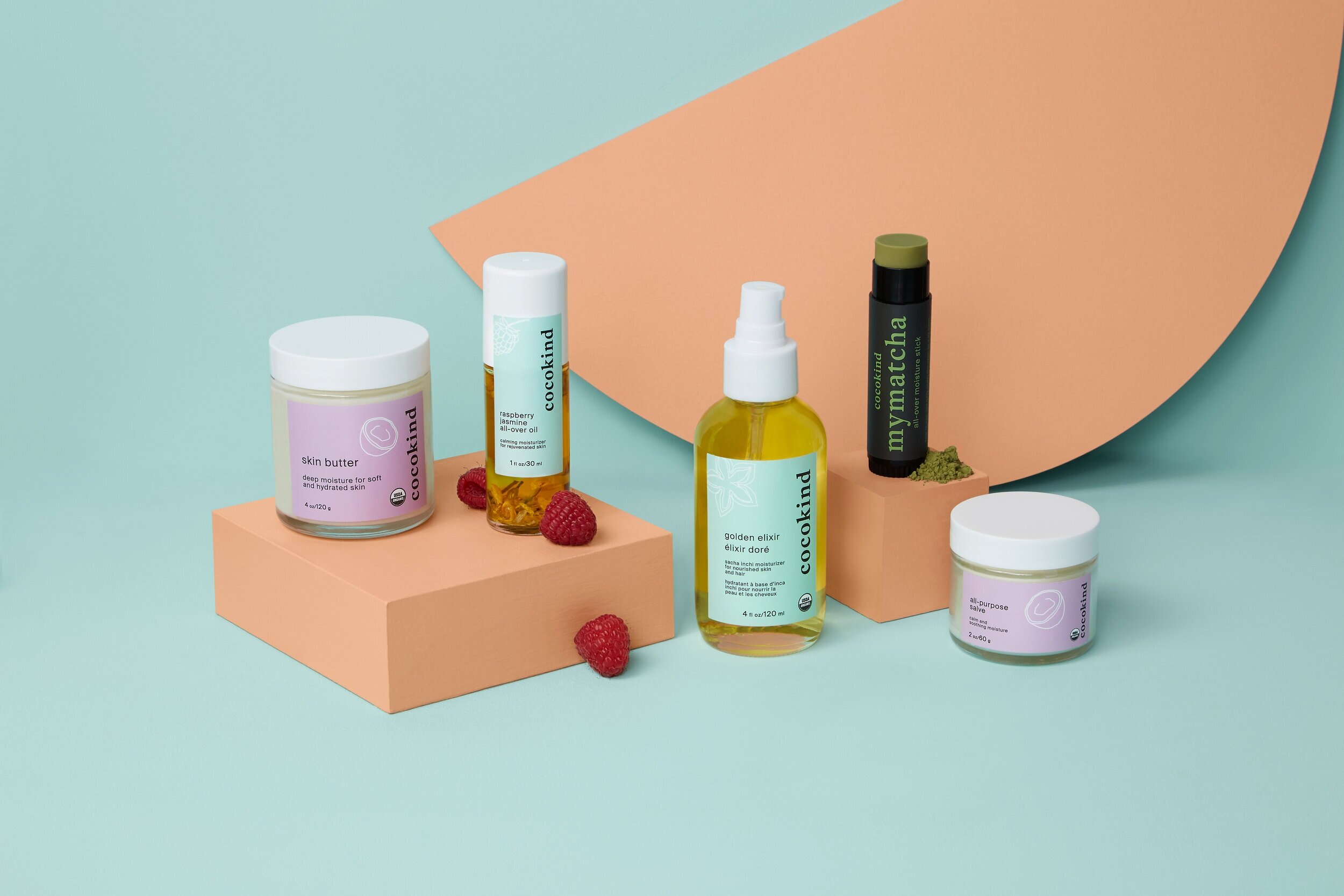
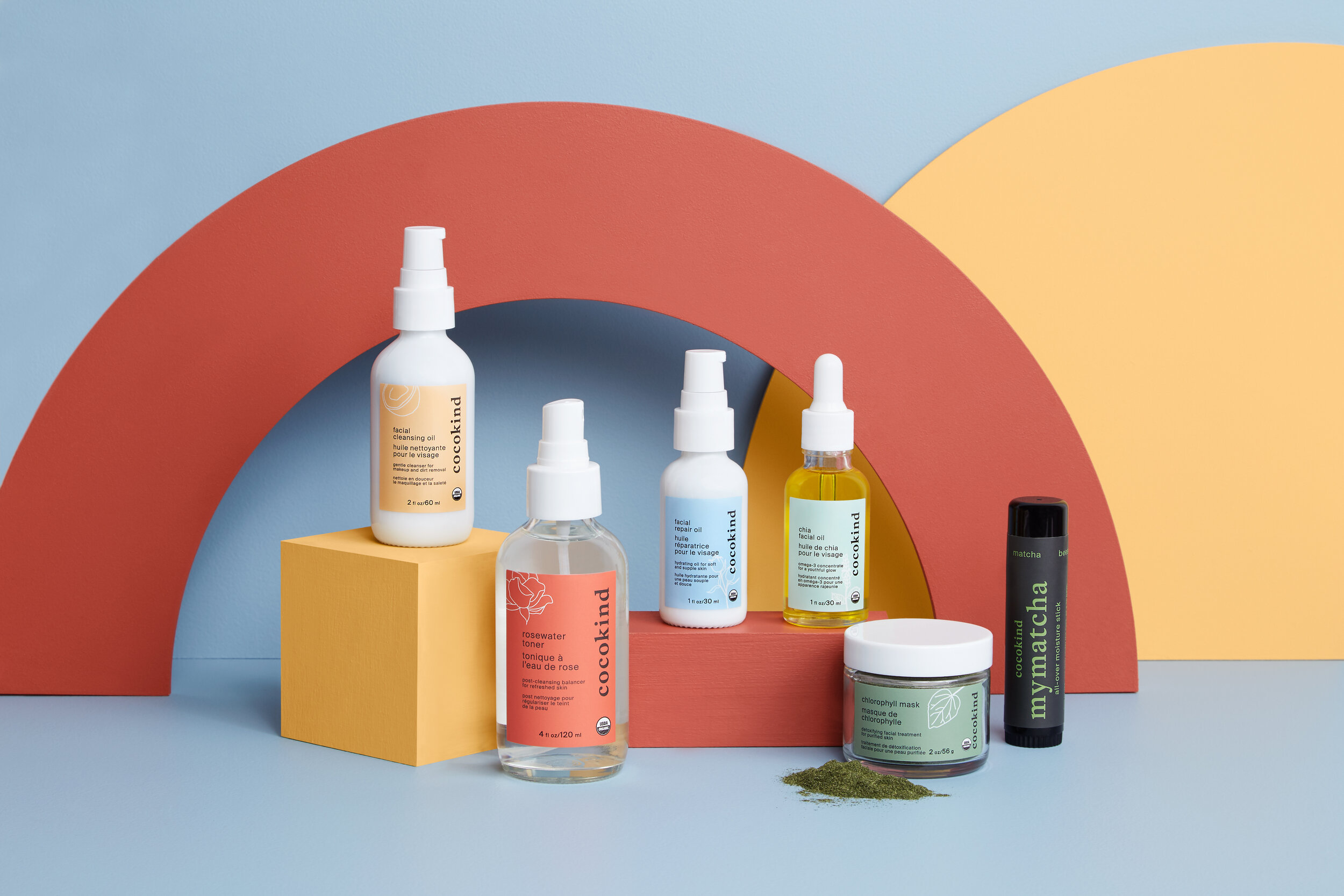
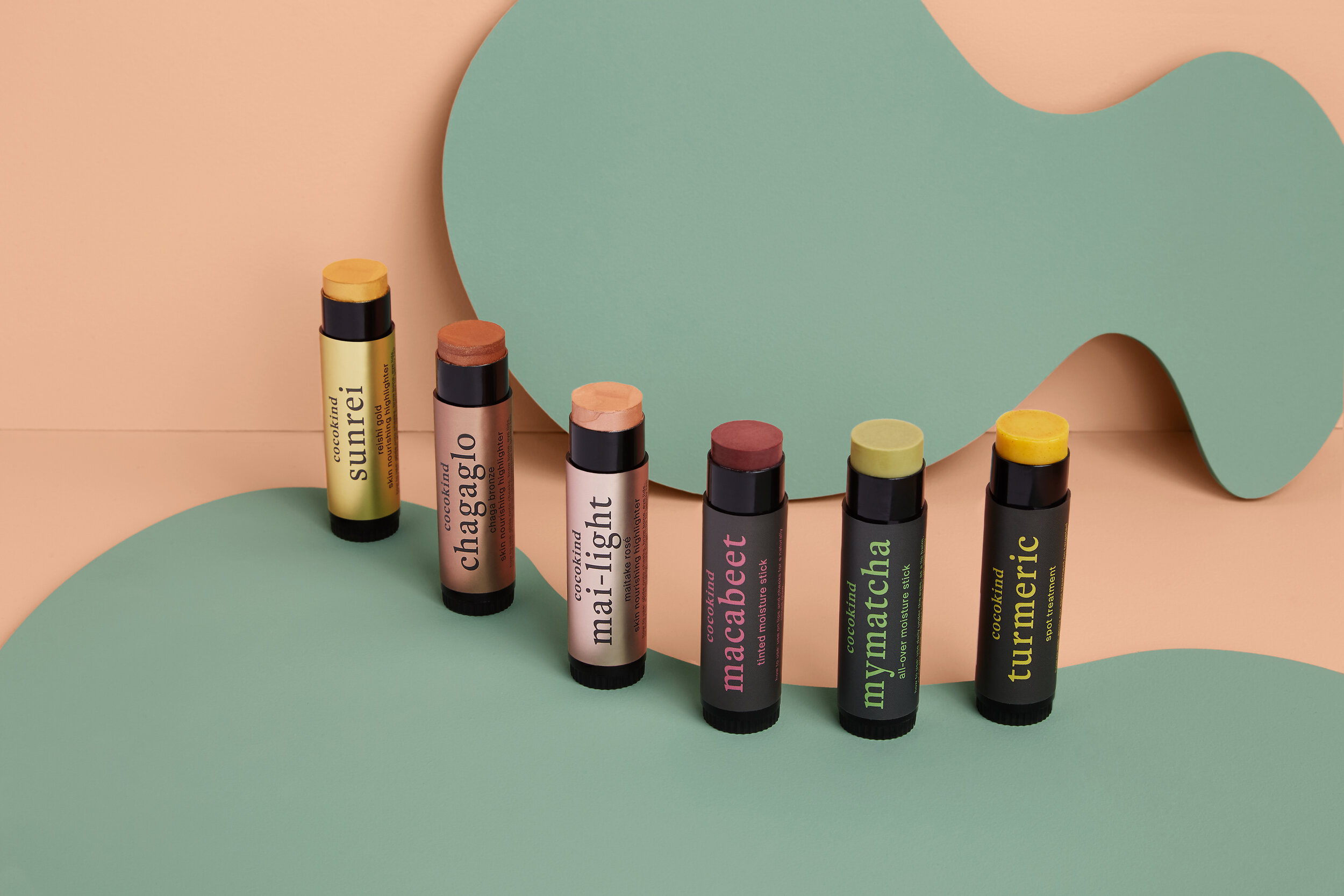
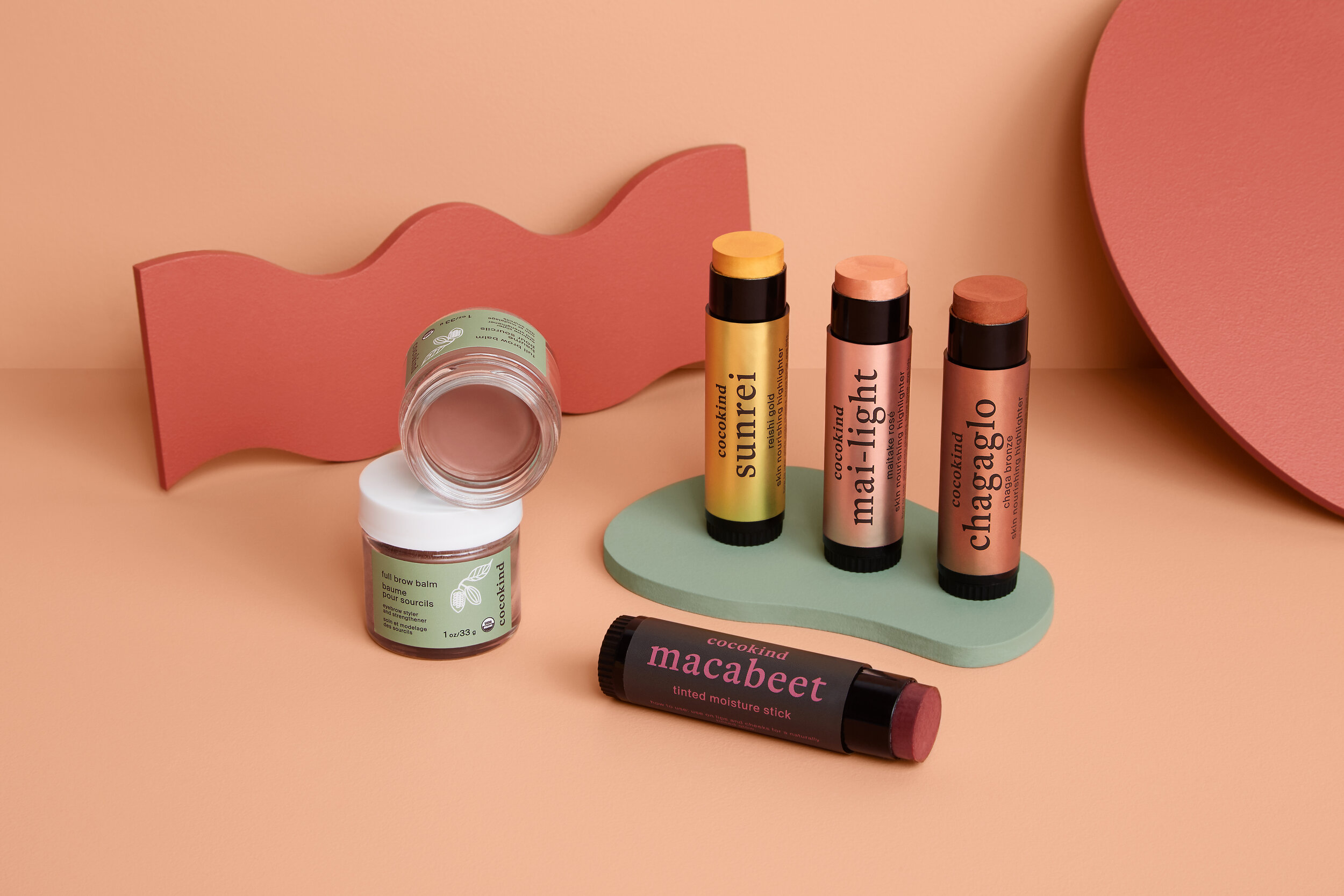
Money Matters: "Make a Profit So You Have the Space to Experiment and Make Mistakes."
The co-founder of KeepCup spills the (financial) tea.
You asked for more content around business finances, so we’re delivering. Welcome to Money Matters where we give you an inside look at the pocketbooks of CEOs and entrepreneurs. In this series, you’ll learn what successful women in business spend on office spaces and employee salaries, how they knew it was time to hire someone to manage their finances, and their best advice for talking about money.
Photo: Courtesy of Keep Cup
When Abigail Forsyth launched her reusable coffee cup 10 years ago in a bid to eradicate disposable single-use cups, she had no idea it would become the global brand it is today. Now, KeepCup has sold over 12 million reusable cups, is used in over 65 countries and their customers have diverted an estimated 8 billion disposable cups from landfill each year—not to mention she’s kickstarted the global movement to eradicate disposable coffee cups. Forsyth is a leader in the global movement to inspire reduce and reuse, with a passion to reduce the use of single-use items.
But her career didn’t start off this way. Forsyth actually had a successful career as a lawyer before joining forces with her brother to launch Bluebag cafe. This is where her awareness around single-use coffee cups was heightened and soon after, KeepCup was born. But despite the global growth, Forsyth has managed to stay completely self-funded without taking any outside investment (which she recommends to fellow entrepreneurs, too.
Read on to hear her money advice, mistakes, and financial lessons learned along the way. You’ll want to write these down.
On why she self-funded the business…
We had a small loan, some grants from the City of Melbourne and Design Victoria, cash flow from our café business Bluebag, and presales off of the KeepCup product prototype. Yes, I would recommend other entrepreneurs to self-fund their businesses. We are fortunate enough to sustain our business and grow without taking on outside investment, which means we have been able to remain nimble, iterative and independent. You need to make money to stay in business, so be wary that outside funding can compromise your ability to have a vision beyond shareholder value.
On how much she pays herself…
We are a certified B Corporation which means that, as a business, we have to meet certain standards of verified social and environmental performance, public transparency, and legal accountability and balance profit and purpose. In line with this, my earnings are capped at 10x the lowest-paid employee.
On how much to pay employees…
We have looked at payscale, similar job descriptions, and have occasionally worked with recruiters to determine appropriate living wages for all our employees. Last year, we recruited a people and culture manager, and took the time to benchmark salaries and review our remuneration structure. Things can change as the business grows, and you have a mix of old and new employees, so we had to revisit our structures and processes.
“You need to make money to stay in business, so be wary that outside funding can compromise your ability to have a vision beyond shareholder value.”
On the most important area for business owners to focus their financial energy…
Right now, all businesses must focus on carbon neutrality: decarbonizing and dematerializing their operations, use their business to make a positive contribution. There’s no business on a dead planet.
Focus your financial energy in places that align with your company’s mission. At KeepCup, our mission is to inspire the world to reduce and reuse, and we’re committed to championing the cause for a more sustainable future. In everything we do, we adopt sustainable business practices from manufacturing to our office space, all the way down to the actual product.
We’re really focused on adopting and setting best practices in sustainable product design and business, even if this means it is at an additional cost to our business. For example, we donate 1% of global revenue to environmental causes and are a certified B Corporation, as we are committed to driving the transition to the circular economy and promoting reduced consumption, reuse and repair.
On the first big expense as a business owner…
Our first big expenses were committing to tooling and the endless road of website development.
On how much they spend on office space…
Too much! We have just spent a year refitting our HQ in Melbourne, Australia to make it consistent with our company values and vision for a more sustainable future. It is a very well insulated solar-powered building with plenty of natural light and green space. Most of the furniture is second hand, and is beautiful, but does not use new resources.
“Build your business from the ground up on purpose beyond profit.”
On when she was able to start saving income…
The savings wax and wane depending on where we are at with things like product development, website updates, and premises etc. I like to have something set aside for opportunities or issues that might come up. As well as committing to providing 1% of our revenue to environmental causes, we are committed to being carbon neutral by 2025. We will see where that journey takes us. I’m also really interested in rehabilitating the natural landscape, particularly in Australia. We have just donated $100,000 for bushfire relief and commit 1% of our revenue, as opposed to profit, to environmental causes.
On setting up the business financials…
When we set up our accounting system I made a lot of noise about how it was overcooked for the simplicity of the business 10 years ago, and that decision has held us in good stead. We always had an external accountant, and our internal accountant was one of our first hires. There is a story about me paying the invoices and throwing them into a tomato box as a filing system, which may or may not be true!
On the tools, she uses to stay on top of the business financials…
In my view, the most valuable tool is a great finance team, and a great set of reports to check the ongoing health of the business. In terms of software, we use Microsoft Navision and Power BI.
On what she wishes she’d done anything differently financially…
I wish we had created a better structure at the outset in partnership with my brother. When we started the business, we were young singles—priorities shifted as the business grew. We also progressed in our personal lives, started families and our individual priorities shifted. Separating business ownership from your role in the business at the beginning is really important.
“Make a profit so you have the space to experiment and make mistakes.”
On why she thinks women should talk about money and business more…
Women should absolutely talk about money and business more. I feel a real sense of responsibility to do right by people and the planet, but it’s really important to acknowledge and talk about the fact that this has not been at the cost of financial success. It creates the space for change.
It’s been really important to me as a woman, to be commercially successful and financially independent, this gives me a voice to talk about the values I believe in and press for change.
On having financial mentors…
No. I don’t have a financial mentor, but I think business owners may very well need one depending on their circumstances. There is an endless parade of people who will line up to tell you what to do and how to do it, and whilst relying on expertise is very important, it’s equally important also ask whose interests they serve. No one will care about or think about your business more than you.
On the money mistakes she’s made along the way…
Throughout our 10 years in business, the biggest lessons I’ve learned have been around understanding margin, understanding the cost impact of waste, balance sheets, and profit and loss and having the right insurance. I would not say these are mistakes, I would say it has been a journey in deepening my understanding and balancing the internal needs of the business with the external environment in which we operate.
On her best money advice for new entrepreneurs…
Build your business from the ground up on purpose beyond profit. I truly believe businesses ought to serve a purpose that is of benefit to people and the planet. Businesses must serve the communities in which they operate, respect the natural resources (which in my view belongs to everyone), respect their employees and protect the natural world.
If you aren’t in business to dematerialize and decarbonize the economy, you are in the wrong business. I think the world is hopefully waking up to the futility of balanced books on a dead planet. We are all in this together.
On the hardest money lessons she’s learned…
Make a profit so you have the space to experiment and make mistakes.
Easy Money: How to Afford the Life You Want (Even If You Don't Have a 6-Figure Salary)
This app is a gamechanger.
This post is in partnership with YNAB.
Photo: Courtesy of Create & Cultivate
Are you familiar with the phrase “scroll head”? If not, here’s some slang 101: a scroll head is someone that aimlessly scrolls through social media, with no purpose at all. In the tech-driven world, we live in, it’s common to find ourselves subconsciously using apps that provide us with no beneficial outcome.
Some jaw-dropping data we found courtesy of Pew Research Center states that 81% of Americans own a smartphone and users between the ages of 18 to 29 are the most dependent on their devices. No real surprises there, but our question is, what are those young adults doing on their phones? Some likely guesses are scrolling through Instagram or texting their group chat. But what about budgeting their monthly income? Say, what? Well, after reading a recent survey that found most young millennials had less than $1,000 in their savings accounts—nearly half had nothing saved at all—we can only hope that they’re devoting some of that scroll time to getting their finances in order.
So, if this sounds like you and you haven’t yet implemented a money-saving strategy, then it’s high time you did. And for those who already have one (and want to up their game), this will interest you, too. Introducing the app that consciously sets you up for success—You Need A Budget (or YNAB for short).
Whether it’s a European vacation you’ve been postponing since graduation, a little more spending money to support your social life, or you simply want to start saving for the future—you need a budget. And it’s no mystery that budgeting can be a big monster to tackle. But, thankfully, YNAB is here to be your best money-saving friend and help you get to where you want to be, financially. It’s so easy.
To make matters even easier, we’re going to show you a break down of the YNAB app’s features with a visual guide below. Follow along to see why you need a budget (like right now!).
Be sure to read all the way to the end to take advantage of YNAB’s special offer for Create & Cultivater’s!
How to budget with YNAB:
We created a theoretical monthly budget for someone who would benefit greatly from YNAB. This person is a freelancer, who brings home $4,000 (after taxes) per month. With the rise of the gig economy, it’s been made prevalent that freelancers facilitating multiple streams of revenue have a more convoluted experience when managing money. So, we wanted to highlight what that might look like, in a way that is easy and beneficial to any and all potential users—freelance or not.
Download:
When you download the app, you are given the option for a trial month free. Once that month is over, they will charge your card info stored in the app store at the yearly rate of $83.99 to continue using. Note: While, at first, this might seem like a steep price to pay for an app, we can guarantee you, that when you see how much money you’re saving (and how much this app is doing to streamline your finances) you’ll understand why. Think about it, that’s just $6.99 a month to have a financial advisor in your pocket. Believe us, it’s worth it.
Link or unlink:
You’ll be given the option to link your bank account directly to the app or manually input your dollar amount to then start budgeting. This is up to your discretion. For the sake of our theoretical monthly budget for a freelancer, we chose to manually input the take-home of $4,000.
Your accounts:
You will see a screen with a list of your accounts. You can choose to add multiple budget plans here. For our example, there is one account titled “Monthly Budget”.
Your budget map:
Your budgeted amount inputted (or the amount reflecting your current bank account balance if you decided to link your bank account) will be highlighted in green at the top of the screen. And below that, you will see a list of expenses you wish to budget against. Your budget map is completely customizable and it’s up to you how you choose to label and allocate your spendings.
Expense categories and labeling:
You can change the names of the different expense categories along with the expense names themselves. We added “Hopeful Savings”, renamed some expense labels, and removed other default expenses that came with the app.
Allocating your preferred spending:
You choose how much you want to allocate to each expense. Below is what we came up with for our theoretical budget. You can edit these allocations as you go if things change for you and your money. The app will let you know when you are over budget by showing the negative amount at the top and highlighting it in red.
Other features:
Beyond the budgeting tactics and tools, there is also a help button that will provide you with any assistance and resources you might need on your way to budgeting. You can also view your “Age of Money” to see how long as well as how much you have been saving. The “Net Worth” function shows what your debts and assets amount to and for more insight into your money-saving success. For more help, check out their online resources and guidelines.
Conclusion:
Though you will have to invest some time (approximately 20 minutes) to input all of the figures, in the beginning, it will be worth your while. Once the setup is complete, it’s easy money. In this specific scenario, savings came out to $140 a month. Now, this might not sound like a lot of bills. But think about it, over a course of 12 months, that’s $1,680. And remember, your budget map is always adjustable. We just placed higher importance on the money for fun and clothing, rather than bigger savings. But, that is just one scenario. After seeing how much we had leftover after dividing up our money (the way we thought we should), we came to realize that maybe we should reset our budget map and reconsider how much we want to save each month. This was a blatant sign of why we should save!
This theoretical process was purely to show the capabilities and functionality of the app. It’s literally that easy to map out your spending on a monthly scale, and incredibly helpful to see what you think you should be spending on rather than the reality. The app allows for extensive customization and we couldn’t love it any more than we already do.
Saving money is incredibly important for a number of reasons, but as is treating yourself here and there. There is no passing of judgment on what you spend your money on, and the app reflects that entirely. Now get out there and start budgeting and don’t forget to make adjustments along the way!
SPECIAL OFFER:
YNAB is giving all Create & Cultivater’s the chance to try the game-changing app for 34 days FREE of charge. So, break the paycheck to paycheck cycle, get out of debt, and save more money to reach your goals. It’s your turn!
Money Matters: Why "Being Close to the Financials Is Key" for Every Entrepreneur
Tech CEO, angel investor, and bestselling author, Kim Perell gives us the 101.
You asked for more content around business finances, so we’re delivering. Welcome to Money Matters where we give you an inside look at the pocketbooks of CEOs and entrepreneurs. In this series, you’ll learn what successful women in business spend on office spaces and employee salaries, how they knew it was time to hire someone to manage their finances, and their best advice for talking about money.
“Great people make great companies, so you need to invest in people first and foremost. No one is successful alone!”
—Kim Perell
When Kim Perell sold her first company, the cash file was so big, it exceeded the space on the receipt at the ATM. But it took a lot of hard work and grit to get to that point. In fact, Perell’s first company actually went bankirupt and she fully self-funded her first startup so it’s humbling to know that not every success story has a fairytale beginning.
Now Perell is helping other women join the billion-dollar club as an angel investor but that doesn’t mean she has slowed down her own entrepreneurial pursuits. The reality is quite the opposite. A serial entrepreneur at heart, Perell is now a tech CEO, and author of the national best-seller, The Execution Factor which offers practical (and real) advice for the next generation of entrepreneurs.
In this edition of our popular Money Matters series, Perell gives all budding entrepreneurs a reality check with her best money advice and financial tips to get your passion project off the ground. Just be ready to dream big and hustle hard.
Where do you think is the most important area for a business owner to focus their financial energy?
“As my first company went bankrupt, and I self-funded my first startup, I relentlessly focused on the bottom line. As a business owner, you have to pay very close attention to all financials—incoming, outgoing, collections, cash flow—all the financial fundamentals, including growth and profitability.
What was your first big expense as a business owner?
“Great people make great companies, so you need to invest in people first and foremost. No one is successful alone! We all bring different strengths, talents, knowledge, and experience to the proverbial table. The more we can recognize, nurture, bridge, and leverage these differences, the more effective, productive, successful—and, ultimately, the happier we will be.”
How did you decide what to pay yourself?
“When I first started my company, I didn’t pay myself and I continued on that trend for a very long time, and continued to re-invest in the company.”
How did you decide what to pay employees?
“We would pay competitively based on market value in addition to equity, and I’m also a big believer in goals and paying on the achievement of goals. Setting specific financial goals for people and teams and the company creates a win/win. Everyone is successful and aligned.”
“As an entrepreneur, being close to the financials is key.”
What are your top three largest expenses every month?
1. People
2. Rent (we have 21 offices)
3. Technology infrastructure investment
How much do you spend on office space?
“My first office was my kitchen table and from there I moved up to a windowless storage room as our first official office. It’s a wonder anyone worked for us. We were extremely scrappy when we started. Big office leases have bankrupted many start-ups, so I encourage entrepreneurs to be conservative on big overhead commitments. Today, many years later, as a global tech company, the amount we spend on office space is significant, as we have 21 offices across the globe. Cost varies greatly by city and the number of people in a specific office. Our offices in the bay area, NYC, London, and Singapore are particularly expensive.”
How much do you spend on employee salaries?
“People make up the largest % of our overall budget.”
“For women to reach the highest levels of leadership, the ability to understand the numbers and metrics of a business (and the sector you operate in) is key, and women are generally exposed to this less. ”
How much are you saving? When did you start being able to save some of your income?
“I remember when I sold my first company in 2008. I was, ironically, in Vegas for a conference when the buyer wired the money into my account. I remember going to the ATM, and the cash file was so big, it exceeded the space on the receipt. I started jumping up and down just thinking, Oh, my gosh. I can’t believe this actually happened.’
“Then I went back to work. I worked so hard to get to that point and am so appreciative and grateful for the opportunity that I’ve been given, that I must ensure that I continue to live a very responsible lifestyle. That was really the biggest turning point in my life. Up until that day, I was investing every dollar back into my company and I was finally able to see the reward from all my hard work.”
What apps or software are you using for finances? How did you decide when to hire a financial advisor?
“When I first started the company in 2003, I used Quickbooks and I ran all the financials myself. As an entrepreneur, being close to the financials is key, and I was especially aware as the company I was with previously went bankrupt. The keen understanding of the business metrics is also what enabled me to successfully sell the company later.”
Do you wish you’d done anything differently in your financial journey as a business owner?
“Dream bigger. While caution can be a good thing, don’t let it stop you from reaching your full potential. Allow yourself to dream bigger and reach for greater success. Now I think bigger and dream bigger in every aspect of my life. When you dream, dream big!
“Follow the two by two rule: it’s going to take twice as long as you think to achieve your goals, it’s going to cost twice as much, and you are not the exception. ”
Why should women talk about money?
“Everyone should talk about money, and especially women who tend to talk about it less. I would encourage women to ask more. Often times, success starts with an opportunity, and then delivering great results leads to more opportunities. If you’re stuck and don’t know how to get that first opportunity, the best way to start is by asking for what you want.
“Ask for the promotion. Ask for the raise. Ask for the opportunity. If you don’t ask, you won’t get. The worst thing that will happen is you don’t get it, but I’ve found that most of the time just the simple act of asking opens up the door to even more possibilities.
“For women to reach the highest levels of leadership, the ability to understand the numbers and metrics of a business (and the sector you operate in) is key, and women are generally exposed to this less. Understanding the numbers lets you speak the same language as everyone else, especially in management and leadership.
“Objective metrics also reduce the potential of gender bias because they are data-driven. I would encourage women to run towards the opportunity to gain exposure and understand the P&L and the financial fundamentals of your business and the sector you want to work in. Focus on how to improve and impact it in your role and in your team. Every role has some financial or key metric impact—how are you helping to drive revenue/growth, or profitability, i.e. reducing cost or allowing the business to gain greater leverage or increase efficiency.”
Do you have a financial mentor?
“My Dad. My dad was an entrepreneur who often struggled and he taught me the concept of having “F YOU” money, which means you should strive to always have enough money (at least six months worth of savings) so that you never have to rely on a job that doesn’t suit you. If you are financially in a position where you are not dependent on each paycheck, it will allow you to make better life decisions that are more aligned with the vision you want for your life.”
What is your best piece of financial/money advice for new entrepreneurs?
“I’ve become an active angel investor and I tell all entrepreneurs and the companies I invest in to follow the two by two rule: it’s going to take twice as long as you think to achieve your goals, it’s going to cost twice as much, and you are not the exception. To this day, I continually remind myself of this in whatever I’m doing financially, professionally, and personally whether I’m going to remodel a house and it’s going to cost me twice as much and take twice as long. If I’m going to buy a business at a certain amount, it’s going to cost me twice as much. Just knowing that it is going to cost more and it is going to take more time than anticipated helps create both the financial framework and the mindset.”
What was the biggest money lesson you learned since starting your company?
“How true the 2x2 rule is. Everything is going to take twice as long and cost twice as much as you originally thought.”
Money Matters: New Eyewear Startup Shares the Top 3 Biggest Monthly Expenses
And why the founder doesn’t pay herself.
You asked for more content around business finances, so we’re delivering. Welcome to Money Matters where we give you an inside look at the pocketbooks of CEOs and entrepreneurs. In this series, you’ll learn what successful women in business spend on offices spaces and employee salaries, how they knew it was time to hire someone to manage their finances, and their best advice for talking about money.
Photo: Courtesy of Zak.
I’ve had 20/20 vision my entire life and despite regular visits to the doctor or dentist to take care of myself, eye care has definitely been pushed to the bottom of my to-do list. In fact, I’m ashamed to admit that I’ve never had my eyes checked and with my 40th approaching next year, I suddenly started to notice a shift in my sight. It slowly creeped up on me and for a long time I thought my eyes were just tired and dehydrated from staring at a screen all day (and they probably were). But after speaking with the founder of L.A.-based eye health brand, Zak., Kyly Rabin I soon realized that it could be more, and that, unfortunately, I’m not alone in neglecting my eye health.
It’s one of the reasons she launched Zak and it’s bricks and mortar store on the popular Fairfax street in West Hollywood (next to Jon & Vinny's, across from Canter's Deli, LA's most walkable block) along with her father, renowned optometrist Dr. Myles Zakheim. Despite nine out of 10 people agreeing that eye health is important, only half of them actually see a specialist or do anything about it and just “1% of people know that signs of serious conditions like thyroid disease, high blood pressure, autoimmune disorders and certain types of cancer can be detected through annual eye exams.”
So, Rabin and her father set about creating a new way of seeing *pun intended* the world of eye care. Their 360 approach covers the spectrum of eye health including exams with an on-site optometrist, and exclusive frames with same-day fabrication in their on-site lab, and even blue light lenses for screen time. Rabin hopes to disrupt the eyewear industry making eye health as routine as dental, body, and skin.
My personal experience at Zak was extremely positive. Every step of the examination process was explained to me so I felt comfortable along the way and in control of the care I was receiving. Turns out, I did need a mild prescription and my eyes were also dehydrated so the optometrist recommended a few drops I can use before bed and in the morning as well as some eye exercises to help with the computer glare and strain. I stepped out of the exam room and ordered my pair of Zak frames which will be made in store and shipped out to me (they arrive today!)—super simple and they only cost $125 with prescription too.
Naturally, I was intrigued to learn more about how Rabin launched their startup especially since this model hasn’t been been done before and there was no roadmap. Ahead, Rabin shares her financial journey, what she’s paying herself, her team, and their top three biggest expenses each month.
Where do you think is the most important area for a business owner to focus their financial energy?
Product, creative and team are all mission critical. Each area fuels the other. If I had to choose one area for Zak. it would be product—core product, and the goods or services you’re providing, is the backbone of your business and deserves the appropriate resources (both time and financial). You have to get that core product right first and everything else can follow.
What was your first big expense as a business owner?
Our largest initial expense was the design and build out of our brick and mortar space on Fairfax, Los Angeles. An elevated eye care experience is an essential part of our model and it was extremely important to showcase our aesthetic in a physical space that challenges the typically antiquated doctors office in both form and function. As one may expect, design, build, and investing in state-of-the art medical equipment are expensive, but in our case, necessary to nourish our brand and mission.
The second biggest expense was developing our in-house eyewear collection. Zak frames are designed to change the way you shop for glasses. We’ve streamlined the shopping experience so selection is finally easy to navigate while providing styles that function like your favorite white t-shirt/everyday uniform. Our styles are timeless, to the point, unfussy, and at an accessible price point, but not cheaply made. Finding the right partners and vendors to bring our high quality product to life took time (and money).
“We aren’t saving anything. Everything that comes in immediately fuels another area of the business in order to optimize growth.”
How did you decide what to pay yourself?
We are still a very new and currently self-funded business. Before taking the leap into all things Zak., I assessed my savings as I knew a salary wouldn’t be possible for at least the first two years without external investment. I’m not paying myself to ensure that every dime is funneled back into the business, which is necessary at this crucial stage of infancy.
How did you decide what to pay employees?
Our full-time team is made up of optometrists and opticians who power the brick and mortar space. We determined wages based on market value and operational excellence. We believe that investing in our team means investing in our growth. I’m interested in working with people who are smarter and more talented than I am and sometimes that means paying more than I’m comfortable with as I’m betting on the productivity and efficiency that the right team provides, which inevitably drives results.
What are your top three largest expenses every month?
Rent, payroll, and the bank loan.
How much do you spend on office space?
Our Fairfax location is our brick and mortar retail space, medical facility and office. It’s the hub of all things Zak and it comes with a hefty price tag—rent is 14% of our monthly gross.
How much do you spend on employee salaries?
We’re currently a very small team made up of full-time and part-time salaried and hourly employees. Our payroll is approximately 25% of our current monthly revenue.
How much are you saving? When did you start being able to save some of your income?
We aren’t saving anything. Everything that comes in immediately fuels another area of the business in order to optimize growth. Our projections anticipate a break even at the two year mark.
What apps or software are you using for finances?
We use a comprehensive all-in-one software that combines our POS with a fully integrated doctor system (EHR). All patient, retail and sales information live in the same place, which is extremely helpful for financial reporting, which we typically run ourselves.
Do you wish you’d done anything differently in your financial journey as a business owner?
All delays in the launch process were costly. In hindsight, more efficient decision-making and a clear establishment of roles would have expedited our opening. Delays in construction, delivery of product, and staff training resulted in increased expense.
Why should women talk about money?
Awareness. The more we know and share with each other about how we’re spending and what we’re making will allow for an equal playing field.
“Identify the areas to be scrappy versus when it’s worth spending.”
Do you have a financial mentor?
My dad. We are co-founders and both bring different skillsets to the business. He still owns/operates a large multi-office optometric practice in L.A. that he opened over 35 years ago with a bank loan. He is a wealth of knowledge when it comes to finances and specifically financial planning within the optical industry.
What is your best piece of financial/money advice for new entrepreneurs?
Identify the areas to be scrappy versus when it’s worth spending. It’s fundamental to be resourceful and do things on your own that can eventually be outsourced but it’s extremely important to have an understanding of when a spend is essential to your brand.
Up Next: "For 3 Years I Didn’t Pay Myself"—The Pai Skincare Founder Gets Real About Money in Business.
Money Matters: Katie Sturino, Founder of 12ish Style and Megababe
In today’s Money Matters feature, we sit down with Katie Sturino, founder of The 12ish Style, a plus-size fashion blog, and Megababe, a cult favorite anti-chafing stick. Below, Katie shares how she manages finances for two rapidly-growing brands—and what she wishes she’d known when she started it all.
Where do you think is the most important area for a business owner to focus their financial energy?
I think it is very important for business owners to invest their financial energy into making a high-quality, high-performance product. But the second place to place financial energy is PR. It doesn’t matter how much time or money you spend on a product if no one sees it.
What was your first big expense as a business owner?
Placing our first order for bottles for Megababe Thigh Rescue.
How did you decide what to pay yourself?
I don’t pay myself; everything we make goes back into the business.
What are your top three largest expenses every month?
Our top expenses per month are our PR department and our product. Currently, we only have hourly employees.
“I wish I would have stopped listening to other people sooner.”
How much are you saving? When did you start being able to save some of your income?
My income comes from my 12ish business—anything larger than a certain amount I put right into my savings account.
What apps or software are you using for finances? How did you decide when to hire a financial advisor (if you have one)?
We use Quickbooks for our finances.
Do you wish you’d done anything differently in your financial journey as a business owner?
I wish I would have stopped listening to other people sooner.
Why should women talk about money?
If we don’t talk about money, then financial conversations are always left up to someone else, usually a man in our life. Money is power and freedom. Sadly, I see so many women at the mercy of their partner financially, which means that a lot of the choices they make are not their own.
MORE ON THE BLOG
Money Matters: Daina Trout, CEO of Health-Ade Kombucha
“There is no shame in wanting money. Money gives you freedom to live the life you want.”
You asked for more content around business finances, so we’re delivering! Welcome to the first installment of Money Matters, our newest series dedicated to giving you an inside look at the pocketbooks of some of your favorite CEOs and entrepreneurs. In this series, you’ll learn what successful women in business spend on offices spaces and employee salaries, how they knew it was time to hire someone to manage their finances, and their best advice for talking about money.
Our first Money Matters guest is Daina Trout, CEO and co-founder of Health-Ade Kombucha. Daina is a huge advocate for being forward when talking numbers, so she’s an ideal woman to kick off the series. Below, she shares her financial story.
Where do you think is the most important area for a business owner to focus their financial energy?
First, you want to focus on growth; second, on profitability. On growth: It is very tough to get your company off the ground and to a place of increasing revenues from scratch, and it’s going to take every piece of your being to get it there (so you can’t be distracted by much else). Also, my experience has been that momentum is a real thing. The faster your company grows today, the faster it will grow tomorrow (at least in the beginning). It’s all hands on deck, full pedal-to-the-metal speed.
On profitability: You don’t want to wait too long for this, else you will be constantly raising money and diluting yourself, feeling like you’re in a never-ending rat race. But at the same time, nobody cares about a profitable business that isn’t growing, so you don’t want this to be your first #1 priority (unless you have one of those rare businesses that can do both from the start). You want to be an owner of a company that is growing and tightening at the same time. It’s important to strive for that balance.
“You want to be an owner of a company that is growing and tightening at the same time. It’s important to strive for that balance.”
What was your first big expense as a business owner?
Two things: People and manufacturing equipment. People do the work so you have to invest here to have a good business. I often wonder, though, if co-packing is better than manufacturing in-house. The capital intensity of owning your own manufacturing is seriously something to consider.
How did you decide what to pay yourself?
I talk about this all the time to fellow founders—it’s a major issue. And I think most are underpaying themselves. In the very beginning, this is hard, because you don’t usually have investment or profits, so you’re last on the list (we paid ourselves a meer $300 a month in the beginning, which covered basically nothing). Once you get investment or profits, though, it’s important to re-look at your compensation and your role. Think about what it would cost for the business to hire for this role in the marketplace. An experienced CEO in LA makes $250K+ on average. This probably doesn’t make sense for a business that has just received its first round of funding, and you hopefully have a ton of upside in equity, so you want to consider that. Also, you probably aren’t as experienced yet, so your salary would be below average. That said, I don’t think $30K makes sense either. Be careful not to be a sacrificial lamb for your company here. A sensible pay that considers your job requirements, your value, and your equity situation should be budgeted for the business. Each year, you should re-calibrate until you get to the average or your goal at a reasonable time.
“Be careful not to be a sacrificial lamb for your company. A sensible salary that considers your job requirements, your value, and your equity situation should be budgeted for the business.”
How did you decide what to pay employees?
In the beginning, you’re always looking for the “unicorns”: the people out there without the experience, but with ALL the talent and drive to be great. This can work in the beginning—it’s certainly cheaper to do it like this. The problem is, you’re constantly going to need more out of them, and they are going to constantly have to rise with the tide in fast growth. You will likely find in one year that it just doesn't work anymore. Rarely, our “unicorns” have made it all the way in seven years, but I can only think of a few who have. Just think about that when you hire these so-called unicorns: it’s likely a short-term cheap gain for a longer term termination and re-hire. At the end of the day, my opinion is you will get the best value from hiring a person that could easily do the job one to two years from now. But you have to pay those people what they’re worth, AKA market value. The one thing you do have is equity, and you can reduce someone’s salary in exchange for that. But at this point, everyone in my company makes market pay or higher, regardless of their equity status. The equity-exchange-for-lower-salary thing only kind of works in the beginning.
What are your top three largest expenses every month?
#1 People. #2. People. #3 Raw ingredients. Did I mention people?
How much do you spend on office space?
Strictly office space is about $10K for every 30 people. But also consider the cost of building out the space. You might be surprised to know that cubicles are $1000K+ per desk, and design is not cheap. Of course, your number could go up or down if you’re super scrappy or need something fancy, but this is the average spend.
How much do you spend on employee salaries?
Salaries right now are about 60% of our total expenses. We do a lot of things in-house, though, so this number could swing 30% down (total expenses here would likely go up) if we choose to outsource more.
How much are you saving? When did you start being able to save some of your income?
We will hit profitability this year, in our seventh year in business. For the beverage industry, it’s pretty typical to take five to 10 years before hitting profits. It will often be on the longer side if you manufacture. This is something to consider—in this industry, you will need cash solutions for five to 10 years to keep your business running.
What apps or software are you using for finances? How did you decide when to hire a financial advisor (if you have one)?
We started with just QuickBooks and Square, but now we use a ton of additional tools to help us, especially for manufacturing, such as Domo and Fishbowl.
“Money to a business is like air to humans. It’s not the reason
you exist, but you literally can’t live without it.
There is no shame in wanting money.”
Do you wish you’d done anything differently in your financial journey as a business owner?
The ONE ABSOLUTE THING I would do differently is hire out financial support earlier than I did. Now that I have my CFO, I literally wouldn’t start another business without him (or someone like him). He’s been critical in helping me build a strong business.
Why should women talk about money?
Women should talk about money all the time and every day. Money to a business is like air to humans. It’s not the reason you exist, but you literally can’t live without it. There is no shame in wanting money. Money gives you freedom to live the life you want. You can make more of an impact on the world. You deserve to live the life you want, right? If you agree, it’s time to start figuring out how you get the money to live the life you want. The same goes for your business, by the way: figure out how much money it needs to make in order to hit its goals. Once you define the life you want, and the money you need, you have a defined gap to work on: the now versus the desired. It’s a heck of a lot easier to get to your desired state if you know how far you have to go.



